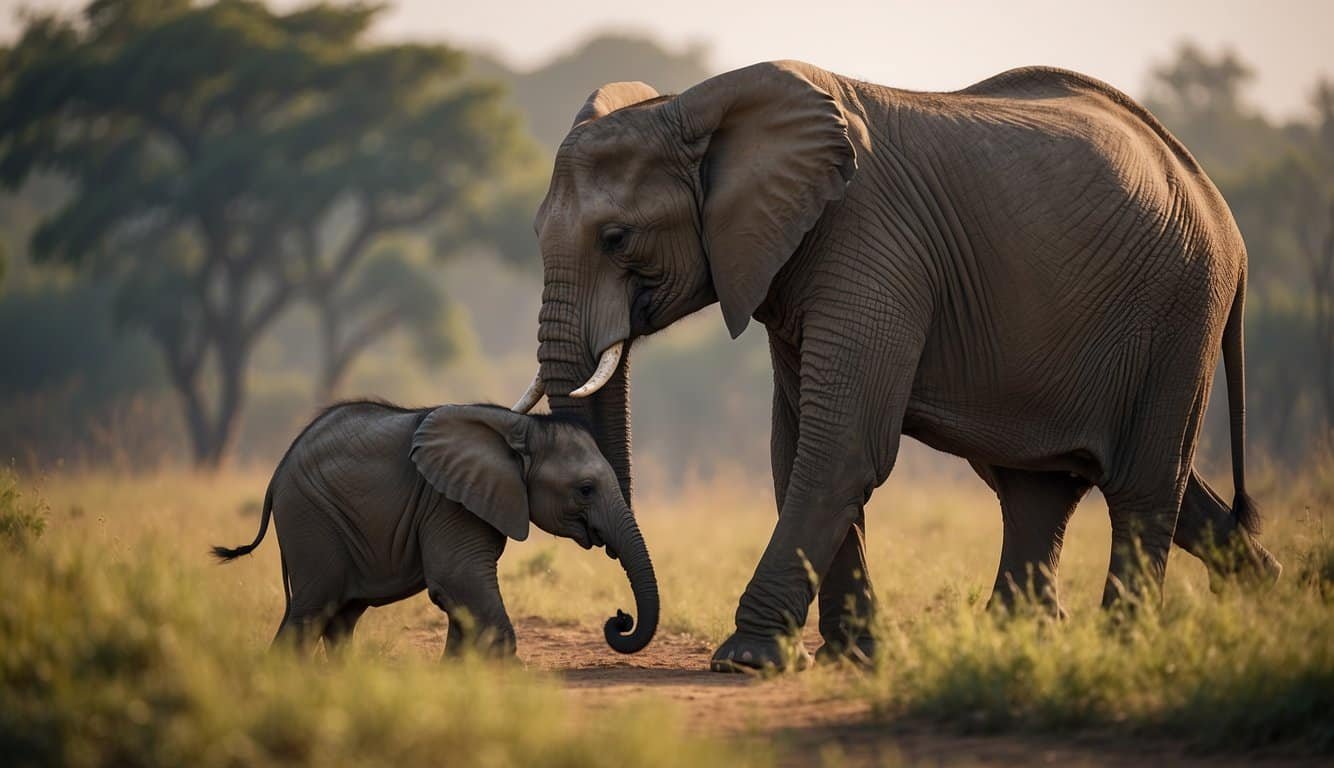Elephant Pregnancy Basics
When discussing the marvels of nature, elephant pregnancies stand out due to their extraordinary length. They carry the distinction of having one of the longest gestation periods in the animal kingdom—a testament to the unique reproductive biology of these majestic creatures.
Gestation Period
Elephants experience a gestation period that far exceeds that of most mammals. Specifically, the gestation period for elephants can last anywhere from 18 to 22 months, varying slightly between species. This prolonged pregnancy allows for the development of their large-brained calves, which are born remarkably well-developed compared to other animals.
Comparing African and Asian Elephants
It’s intriguing to note some differences between the two main species of elephants. The African elephant, which is the larger of the two species, tends to have a longer gestation period averaging around 22 months, while their Asian counterparts generally carry their pregnancies for about 18 to 20 months. This variation, although slight, is one of many fascinating distinctions that emphasize the diversity within the elephant family.
Reproductive Biology

Elephants have some of the most remarkable reproductive systems in the animal kingdom, with a complex interplay between fertility, conception, and a lengthy gestational period. This section delves into the intricate world of elephant reproduction, focusing on the key stages of conception and fetal development.
Fertility and Conception
Elephant fertility can be a complicated affair. Females of breeding age go through a cycle of ovulation, where the chances of conception are heightened. This process is critical for the fertilization of the egg. During this fertile window, female elephants signal their readiness to mate through changes in behavior and hormones, alerting males to their reproductive status. The actual act of fertilization occurs internally, akin to most mammals, with a considerable dependence on timing and a bit of serendipity.
Gestation and Development
Once fertilization is successful, female elephants embark on an extensive journey through the longest gestational period among mammals, lasting up to 22 months. Throughout this gestation period, the elephant fetus undergoes substantial development, with significant brain growth marking intelligence that is unparalleled in the animal kingdom. The protective environment of the womb allows for the fetus’s safe development until birth, by which time the brain and other vital organs are well-formed and functional. This prolonged gestational period is critical for the complex brain development that characterizes elephants.
Birth and Young Care

The majestic journey of elephant parenthood culminates in a remarkable birth process and an intricate mother-infant relationship that fascinates wildlife enthusiasts and scientists alike.
Birth Process
Elephants have one of the longest gestation periods among land animals, lasting about 22 months. The birth of a baby elephant, a momentous event, most often occurs at night or during the cooler parts of the day, possibly to avoid predators and the heat stress. A newborn calf can weigh anywhere from 200 to 300 pounds and is usually able to stand and walk within an hour of its delivery.
Mother-Infant Relationship
After birth, the bond between the mother and her newborn is touching and strong, providing the calf with the nurturing it needs to thrive. The mother is typically accompanied by other females, who form a protective circle during labor and act as ‘allomothers’ to help with the baby elephant’s care. This social support not only ensures the newborn’s safety but also teaches it survival skills and social cues essential for their development within the herd.

